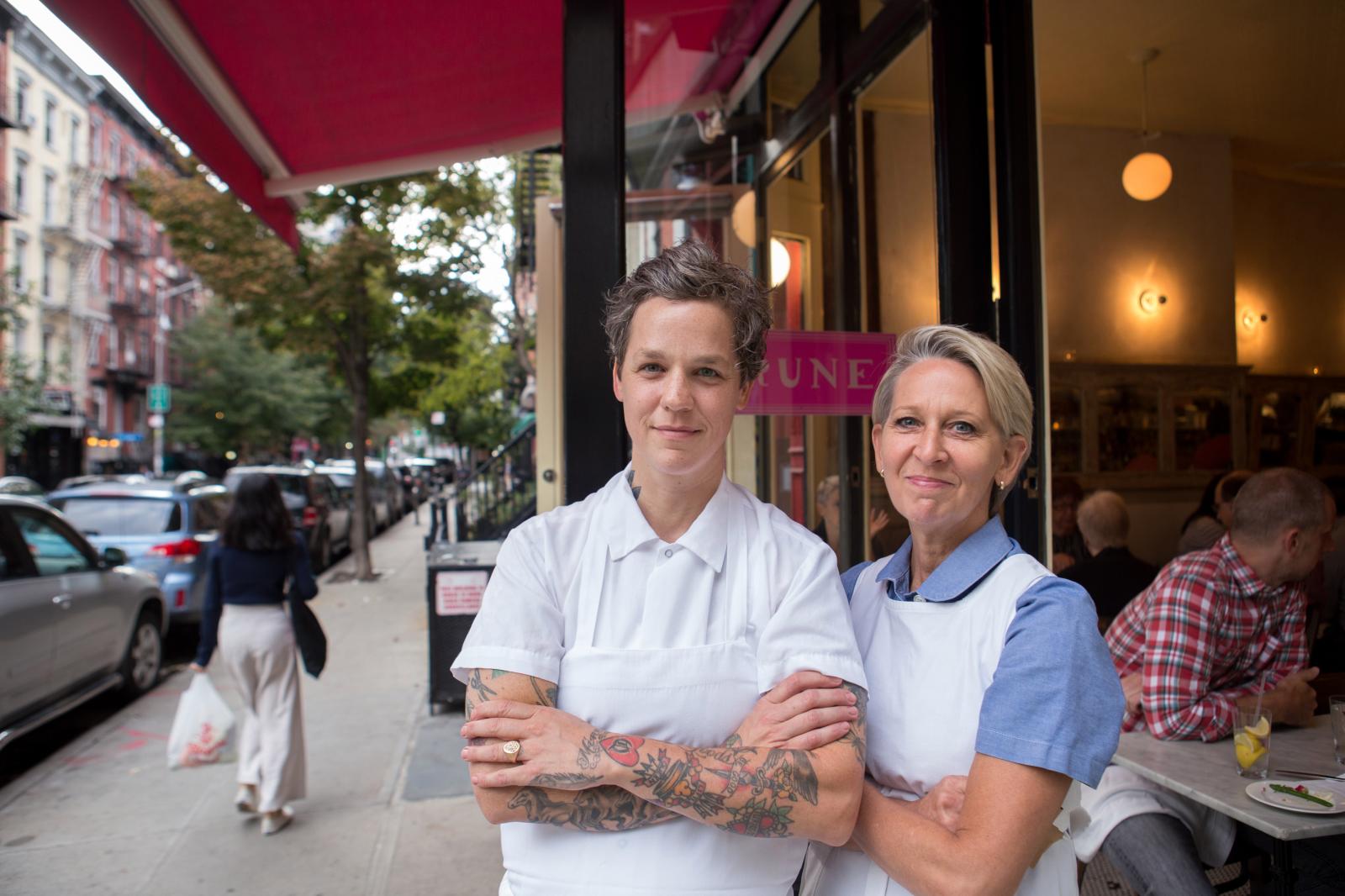Quartzy: the booming edition
Happy Friday!

Happy Friday!
This week for Quartz’s latest installment in our series about women in the workplace, How We’ll Win, Annaliese Griffin wrote about one of my childhood favorite movies, Baby Boom.
Specifically, she examined how this 1987 Nancy Meyers-penned rom-com holds up to a 2019 perspective on gender norms and roles. Her verdict: “depressingly well.” I won’t say there are spoilers ahead, because nothing could spoil this gem, but plot points will be revealed.

Baby Boom, if you’re not familiar, stars Diane Keaton as J.C. Wyatt, a hotshot Manhattan ad exec with shoulder-padded suits and a yuppie boyfriend played by Harold Ramis. That all gets blown up when she (surprise!) inherits a baby named Elizabeth from a long-lost family member. In short order, J.C.’s parenting responsibilities sideline her work, and she finds herself “supplanted by a young and extremely hatable James Spader.” She leaves the firm and decamps to a Vermont farmhouse with baby Elizabeth, where she falls in love with the local veterinarian played by Sam Shepard and starts Country Baby, a high-end (“gourmet,” in 1980s parlance) baby food-business that, as Annaliese points out, “could be straight out of a shop in Brooklyn.”
The story comes to a head when her former employer (Fritz!) makes an offer for Country Baby, with J.C. returning to Manhattan as CEO. As Annaliese—who herself has decamped to Vermont from New York City with two babies—writes: “She’s thrilled for a moment and then rejects the offer, telling her former boss and colleagues that there’s a crib in her office and a mobile above her desk and that’s the way she likes it. She doesn’t want a bonus or access to a corporate jet if it means losing the work-life balance she’s stumbled upon—not that she calls it that.”
Baby Boom: still very much worth watching!
Blooming bud businesses. Speaking of female founders, I recently met two women in their 50s who created cannabis companies designed to serve the needs of their fellow women—especially those in middle-age, many of whom are caring for children, parents, and friends.

At an investor conference last month, Jennifer Chapin (pictured above right, with her cofounder, Amanda Jones), recalled being “laughed out of the dispensaries” when she tried to sell her low-dose cannabis-infused teas in the early days of her company, Kikoko. Three years later, Kikoko’s teas, which come in sachets and canisters wrapped with pink-and-purple stripes and cartoon flowers promising benefits such as “Sensuali-tea” and “Tranquili-tea,” are sold through over 300 storefronts and delivery services across California, and Chapin is raising capital to launch new products.
Kimberly Kovacs, another woman in her 50s, started MyJane to deliver “curated cannabis” boxes to women (think Birchbox-meets-Eaze). The company was recently acquired by a cannabis logistics conglomerate, with Kovacs staying on as CEO. Both women saw the opportunity for products that spoke specifically to women’s needs.
Plus, noted MyJane cofounder Cara Raffele, “There’s a trust gap in healthcare for women.” Indeed, as Annaliese has written, that trust gap has made women particularly receptive to wellness brands that address their health concerns, respect their pain, and speak to them personally.
“We’re really tired of taking Ambien,” Chapin said at one point during her presentation at the conference. A women near me whispered under her breath: “That’s so me.”
The Prune Institute for Living. Quartz’s Alex Ossola recently interviewed Gabrielle Hamilton and Ashley Merriman, partners in life and work at the beloved New York restaurant Prune, about the restaurant’s code of conduct.

“According to Hamilton and Merriman,” writes Alex, “the code has a kind of transformative power. It has helped the kitchen avoid becoming a hierarchical, top-down fiefdom—a concentration of power that innumerable chefs have abused in the past. It can turn obnoxious, entitled patrons into polite diners who are delighted to have a seat at the table. And it’s created the kind of environment where Hamilton and Merriman, along with their staff, want to spend much of their day.”
Hamilton offered an example from the pair’s short-lived effort to take over The Spotted Pig, Ken Friedman’s west village restaurant, in the wake of a #MeToo scandal. When a pungent odor was permeating the restaurant’s third floor, she embarked on a tireless quest to discover and eliminate the source of a stink in the restaurant’s refrigerator after countless people ignored it or made half-hearted efforts to ameliorate it. (Not a metaphor.)
“It smells exactly like what you think it smells like—dog breath at low tide,” said Hamilton, describing how she ended up on the floor, cleaning all the refrigerators’ bins of what she found to be a spilled bottle of fish sauce.”The porter saw me, the general manager saw me, the waiters saw me, the back waiters saw me, on my knees, finding the goddamn smell.”
This demonstrated at least two of Prune’s principles: 1) An effort to be thorough and excellent even in a gross task and 2) a lack of hierarchical division between workers, when it comes to what they’re willing to do. (Also, leading by way of example.)
Hamilton jokes Prune is actually an “institute for living” disguised as a restaurant: “We hide behind the marrow bones, but really what we’re doing here is trying to change the whole goddamn world, one lamb chop at a time.” I encourage you to read Alex’s whole interview about how five fairly simple principles guide the restaurant—not to mention Hamilton’s unforgettable 2012 memoir, Blood, Bones & Butter.
Also not to be missed this week on women-led companies: Jia Tolentino’s excellent New Yorker piece on Outdoor Voices‘ Tyler Haney, which explores how Haney and Tolentino herself both grapple with and capitalize upon the expectations of successful young women.
Have a great weekend!
[quartzy-signature]


A trick for overcoming “musical paralysis.” A new season calls for new tunes, which is statistically unlikely for those of us over 30, according to one depressing UK study that found many of us stopped listening to new music after that age. Our own Dan Kopf is here with a cure that does not involve an algorithm serving you bands that sound vaguely like the ones you already listen to. For a decade now, National Public Radio has released “The Austin 100,” a list of their favorite songs from the annual music festival, which wraps this weekend in Texas. You can download MP3s or stream the list on Spotify, and here’s Dan’s method for using it: “I force myself to listen to at least 60 seconds of each song on the list. That’s long enough to really give each song a chance, but not so long that you are torturing yourself if you hate it. The whole exercise usually takes 2-3 hours, and it’s perfect for while I am walking around or exercising. (It would also be great for a road trip.) Last year, I fell for the soulful rock of the British solo artist Nilüfer Yanya, the Korean shoegaze band Say Sue Me, and the intense pop of Australia’s G Flip … Your new favorite band may be just 60 seconds away.”